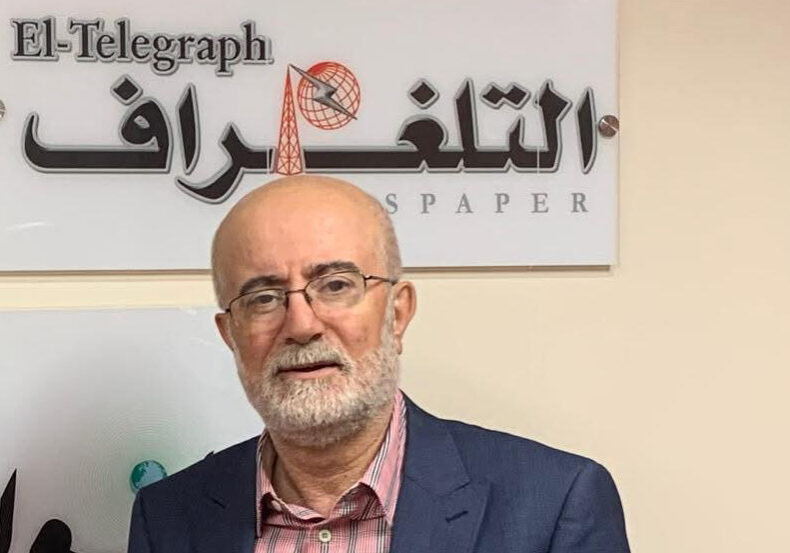Australia/Israel Review
Essay: The Foresight of Bernard Lewis
Jun 8, 2018 | Martin Kramer

The world loses its preeminent historian of the Middle East
Ed Note: On May 19, Bernard Lewis, the world’s most pre-eminent historian of the Middle East, passed away 12 days short of his 102nd birthday. One of the most prominent of the many students Lewis mentored over his 75 years of teaching and scholarship is Professor Martin Kramer, who had this to say about Lewis’ passing:
“The vast range of his humanist erudition, his mastery of difficult languages, and his command of every nuance of English, inspired veneration and envy. Bernard tended kindly to generations of students, rewarded friendship with loyalty, imparted his wisdom to statesmen, and fought many good fights. He loved his adopted country, America, and his ancestral land, Israel. And he had an abiding respect and empathy for the civilisation of Islam. Bernard combined genius and (what the Jews call) menschlichkeit – a fusion of integrity, decency, and compassion.”
Below, we bring you an excerpt from a longer appreciation of the most important of Lewis’ scholarly achievements penned by Prof. Kramer in honour of Lewis’ 100th birthday in 2016.
As the year 1976 opened, the Middle East hardly seemed poised for a great transformation. The Shah of Iran remained firmly seated on his peacock throne. Off in Iraqi exile, an elderly Iranian cleric named Ayatollah Khomeini nursed his grievances in obscurity. Anwar Sadat, Egypt’s confident President, had the country under his thumb; the Muslim Brotherhood and its offshoots languished in ineffectual opposition. In Saudi Arabia, a young man named Osama bin Laden finished his education in an elite high school, where he had worn a tie and blazer. Since the previous summer, Lebanon had been roiled by battles, according to Western reportage, between “leftists” and “rightists.” A key player there was the Palestine Liberation Organisation under Yasser Arafat, darling of the international left and champion of a “democratic, secular state” in Palestine.
The role of Islam in politics? There wasn’t any to speak of.
Imagine, then, the surprise of the readers of Commentary magazine when the January issue landed in their mailboxes bearing these words on the bright yellow cover: “The Return of Islam.” The byline beneath that sensational headline did not belong to a roving journalist or a think-tank pundit but to Bernard Lewis, the eminent British historian of the Middle East, just recently transplanted to America. Thus did the West receive its very first warning that a new era was beginning in the Middle East – one that would produce a tide of revolution, assassination, and terrorism, conceived and executed explicitly in the name of Islam.
Another slogan, “The End of History,” would make its appearance with the demise of the cold war in the early 1990s; it has since come and gone. “The Return of Islam” is still very much with us. For Lewis, the author of some 30 books and 200 articles, that essay has always stood out as a landmark in his own career. This is evident in the following passage in a brief résumé written by him in the early 2000s for Princeton University’s Department of Near Eastern Studies, where he spent the latter part of his academic career:
During the last twenty years or so, I have become more and more concerned with the rise and spread of various extremist versions of militant Islam. My first publication on the subject was an article on ‘The Return of Islam,’ published in Commentary magazine in January 1976. This was years before the Iranian revolution. I have since given many lectures and published many articles as well as several books on various aspects of this topic.
In this note, Lewis didn’t name those “many articles” and “several books”, although they had catapulted him from academic fame to genuine celebrity. Two of them bore gripping titles also identified with him: What Went Wrong? and The Crisis of Islam, two post-9/11 bestsellers. But it is by the early prophetic phrase “The Return of Islam” that he wished to be recognised, and it provides an essential entryway to any proper understanding of his immense achievements as a scholar, a writer for audiences both specialised and general, and a public intellectual of unmatched authority and influence.
Over Lewis’ long career – he published his first scholarly article in 1937 – he has been the subject of innumerable profiles, all seeking to capture the essence of his astonishingly versatile performance. All of them fall short: there is always much more to say, and no one has the full breadth of competencies to say it. That is owing to what one such profile accurately describes as the extraordinary range of his scholarship, his capacity to command the totality of Islamic and Middle Eastern history from Mohammed down to the present day. This is not merely a matter of erudition; rather, it reflects an almost unparalleled ability to fit things together into a detailed and comprehensive synthesis. In this regard, it is hard to imagine that Lewis will have any true successors.
Those words are not only a tribute to Lewis but a tacit admission that at present the field of Middle Eastern and Islamic studies cannot attract or nurture a genius of his calibre.
Depending on the date, one might have encountered Lewis in the 1930s as a young British prodigy and budding expert on extreme Shi’ite sects and mediaeval guilds; in the early 1940s as a British intelligence officer working in MI6 to win a world war in the Arab Middle East; or in later decades as a product and a pillar of the School of Oriental and African Studies at the University of London. He later gained renown as a pioneer researcher in the vast Ottoman archives in Istanbul; a social historian focused on Islam’s underclasses, from slaves to Jews; a cold-war liberal and the leading authority on the Western-style modernisation of Turkey; a sensitive translator of poetry and prose from Arabic, Hebrew, Persian, and Turkish; the world’s most acclaimed interpreter of “Islam and the West”; the antagonist of the radical Palestinian apologist Edward Said in a great duel over “Orientalism”; the mentor to successive generations of students, many from the Middle East; a friend of Israel and its leaders, and an annual snowbird in Tel Aviv; a seer feted by the George W. Bush Administration in the aftermath of 9/11; and a media-savvy interviewee and much-celebrated author of huge bestsellers.
And that long paragraph barely begins to inventory Lewis’ diverse roles and monumental contributions. Even his own memoirs, Notes on a Century (2012), leave much virgin ground for any future biographer.
Opinions will surely differ on which aspect of Lewis’ vast oeuvre deserves to be emphasised. To speak for myself, I first met Bernard (and now permit myself this intimacy) shortly after his arrival at Princeton, when I enrolled there in graduate studies in the autumn of 1976. As his student, disciple, and friend for four decades now, I have read much, if not most, of his work, have had many occasions to discuss it with him at length, and would be hard put to name a book or article that isn’t a useful prompt for a broader appreciation.
Should one begin with his take on Jewish-Muslim relations in Semites and Anti-Semites (1986)? Or perhaps his view of his own field in “The State of Middle Eastern Studies” (1979)? Why not his virtuoso command of Muslim sources and his appreciation for the Muslim perspective in The Muslim Discovery of Europe (1982)? When he turned 80, I edited a collected volume in Bernard’s honour whose point of departure was a seemingly minor 14-page article, “The Pro-Islamic Jews” (1968).
The possibilities are endless. But of all the many points of departure, the one that stands out on this centennial of his birth – at a time when Islamic State, jihad, and caliphate fill headlines – is the one from early 1976, “The Return of Islam.” Nearly all experts on the Middle East had failed to anticipate the likes of Ayatollah Khomeini and Osama bin Laden, and awoke, when they awoke, only to voice the firm opinion that Islamist revolution and terror had nothing to do with Islam. Bernard was not only the first to alert the world to the possibility of Islamic upheavals; he demonstrated that they were not deviations at all, but a resumption of Islam’s ancient feud with the West.
Although he will be remembered, favourably or otherwise, for many things, for one he will never be forgotten: his all-too-accurate prognostication that our age would be defined by the return of Islam.
Dr. Martin Kramer teaches Middle Eastern history at Shalem College in Jerusalem and is the Koret visiting fellow at the Washington Institute for Near East Policy. His most recent book is The War on Error (2016). © Mosaic magazine (mosaicmagazine.com), reprinted by permission, all rights reserved. Read the full essay at bit.ly/2Lj3Y3z.
Tags: Media/ Academia






